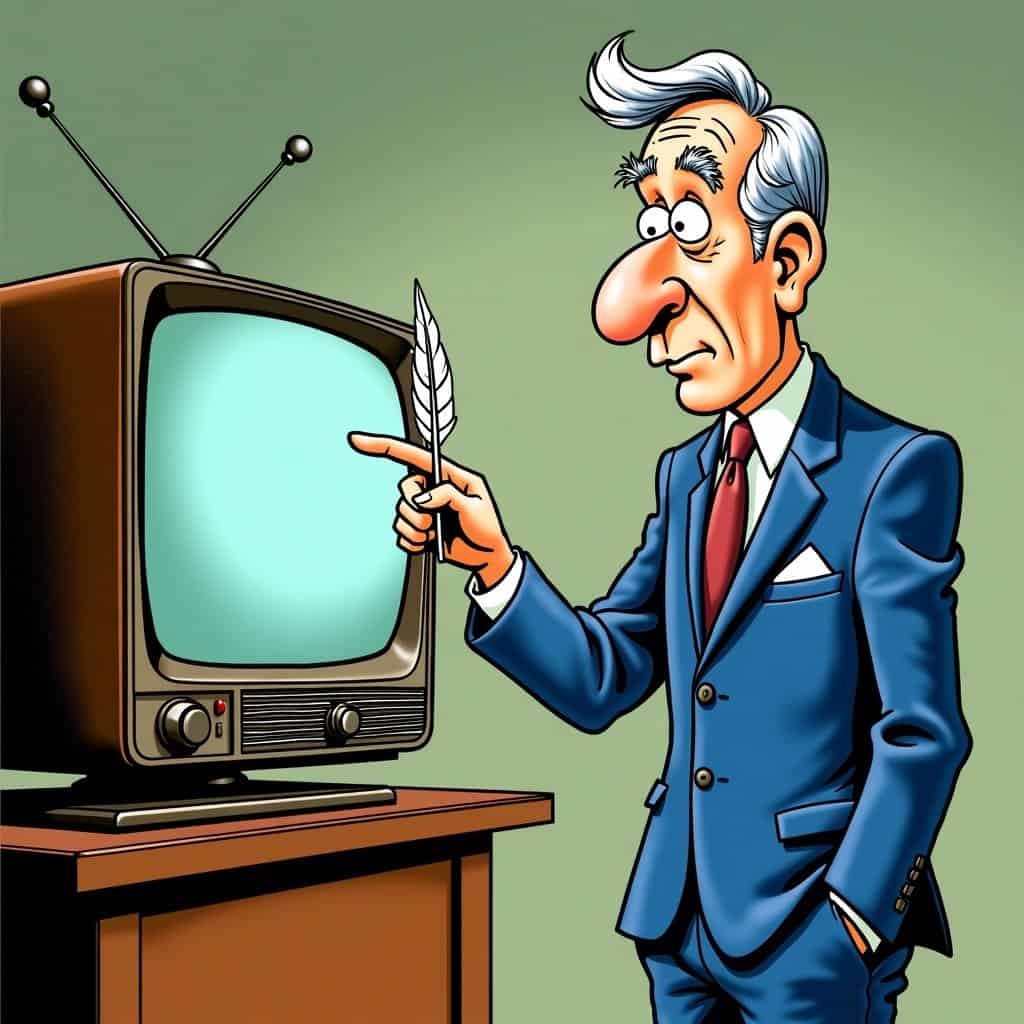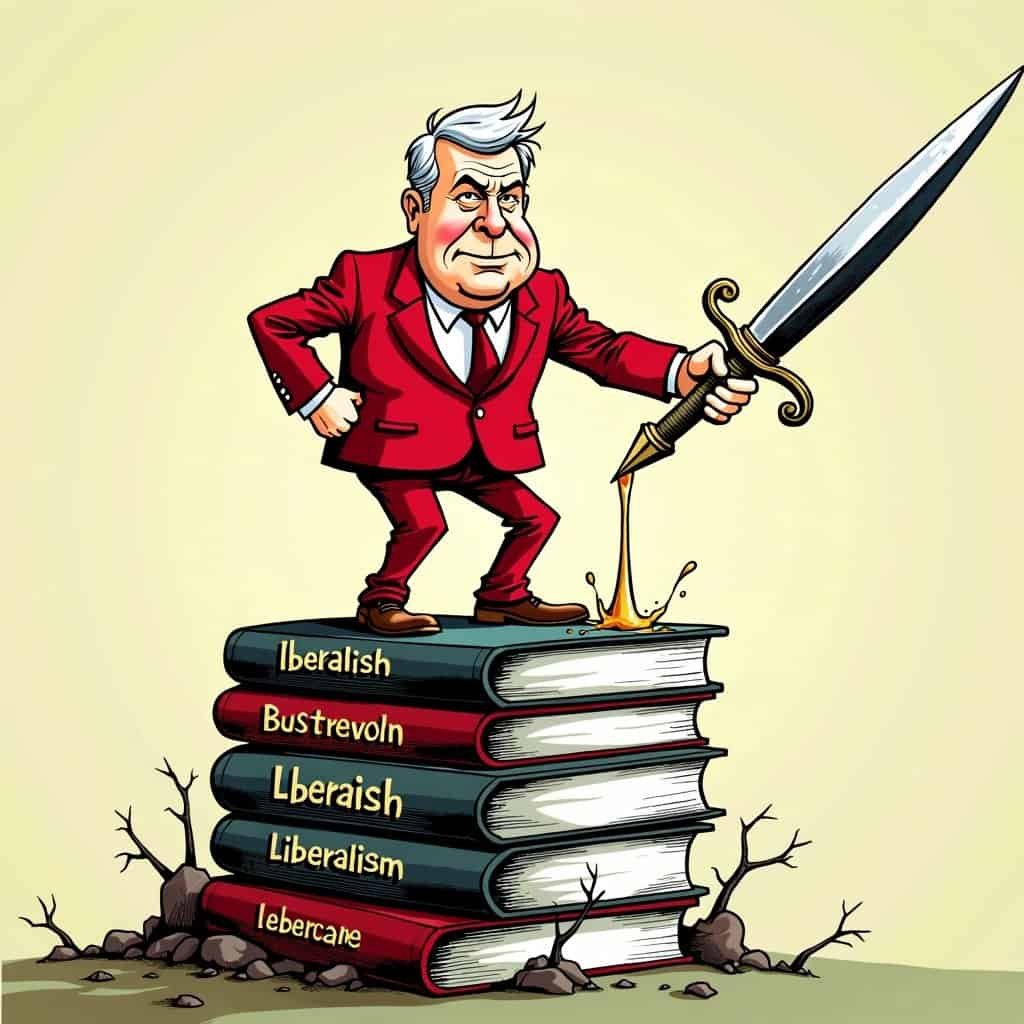Ah, William F. Buckley Jr., the forefather of modern American conservatism. The man who could critique modern liberalism with such erudition and wit, you’d think he was Shakespeare reborn with a subscription to The National Review. Let’s take a look at how the maestro himself might pick apart the far-reaching influence of today’s liberal agenda.
Buckley’s style was sharp and on-point, much like that moment when you realize the Federal Reserve is finally doing something right. His take on modern liberalism always started with a reminder: Individual liberty is paramount. Conservatives treasure this value like Elon Musk treasures his Twitter account. On the flip side, liberals often tout the mantra of collective responsibility, which, let’s be honest, sounds a lot like a group project where only one person does the work, and everyone gets the grade.
Economic Policy: Tax and Spend
Remember Buckley’s stance on the economy? He would laugh at the never-ending liberal push for higher taxes to fund their progressive wishlist—free college, universal healthcare, and wind-powered unicorn farms. Conservatives believe in the trickle-down effect not as a theory, but a proven economic fact. Lower taxes boost investments, increase employment, and even grow government revenue without emptying the working class’s pockets.
Liberal economic policies are like feeding a fish instead of teaching them to fish. No wonder these policies lead us to economic stagnation. Why should businesses invest when they’re getting hit with higher taxes at every turn? Conservatives, on the other hand, believe in a cycle of prosperity where economic freedom creates more opportunity.
Social Justice and Equality: The Core of Conservative Ideals
Buckley would probably shake his head at the virtue signaling that often comes from progressive circles. Their fixation on leveling the playing field usually ends up in a bureaucratic maze that hinders true achievement. Sure, progressives push for affirmative action and seek ‘equity,’ but what about individual merit? Conservatives dare to champion a wild notion: equality of opportunity.
Merit-based systems are the heart of American success stories. It’s the Horatio Alger spirit—pull yourself up by your bootstraps, as embodied by generations of Americans. The idea of meritocracy isn’t outdated; it’s the foundation of our society. Tell that to the woke warriors!
Environmental Policies: A Balance Conservatives Master
What would Buckley say about today’s Green New Deal? Probably that it’s a sneaky way to introduce socialistic policies. Conservatives don’t ignore environmental issues, but they support market-based solutions instead of heavy-handed government mandates. Fossil fuels aren’t the bad guy; they’re the backbone of economic stability. Develop cleaner energy but don’t wreck economic growth in the process.
Healthcare: Free Market over Government Overreach
Buckley was a firm critic of government-controlled healthcare. Competition drives innovation. Innovation drives down costs. Simple, right? The liberal push for Medicare For All sounds great until you’re stuck in a DMV-sized line waiting for a flu shot. Conservatives know that consumer choice and minimal government involvement are the key to a healthy, yet thriving healthcare system.
National Defense: Sovereignty Above All
When it comes to national defense, Buckley would have had no problem stating that liberals often value international approval over national interest. Conservatives firmly believe in a strong military and sovereign policies. The best way to maintain peace? Be ready for war. It’s the conservative motto—strength through power, not apologies and appeasement.
In conclusion, Buckley would likely offer a friendly, yet pointed reminder that modern liberalism often takes us down a path of overdependence and limited freedom. The conservative path? It’s one of individual liberty, free-market prosperity, and a balanced approach to both social and economic issues. So, as we hear the echo of Buckley’s rich baritone, we’re reminded that his timeless critique is as relevant as ever.
Table of Contents
- Economic Policy: Tax and Spend
- Social Justice and Equality: The Core of Conservative Ideals
- Environmental Policies: A Balance Conservatives Master
- Healthcare: Free Market over Government Overreach
- National Defense: Sovereignty Above All






